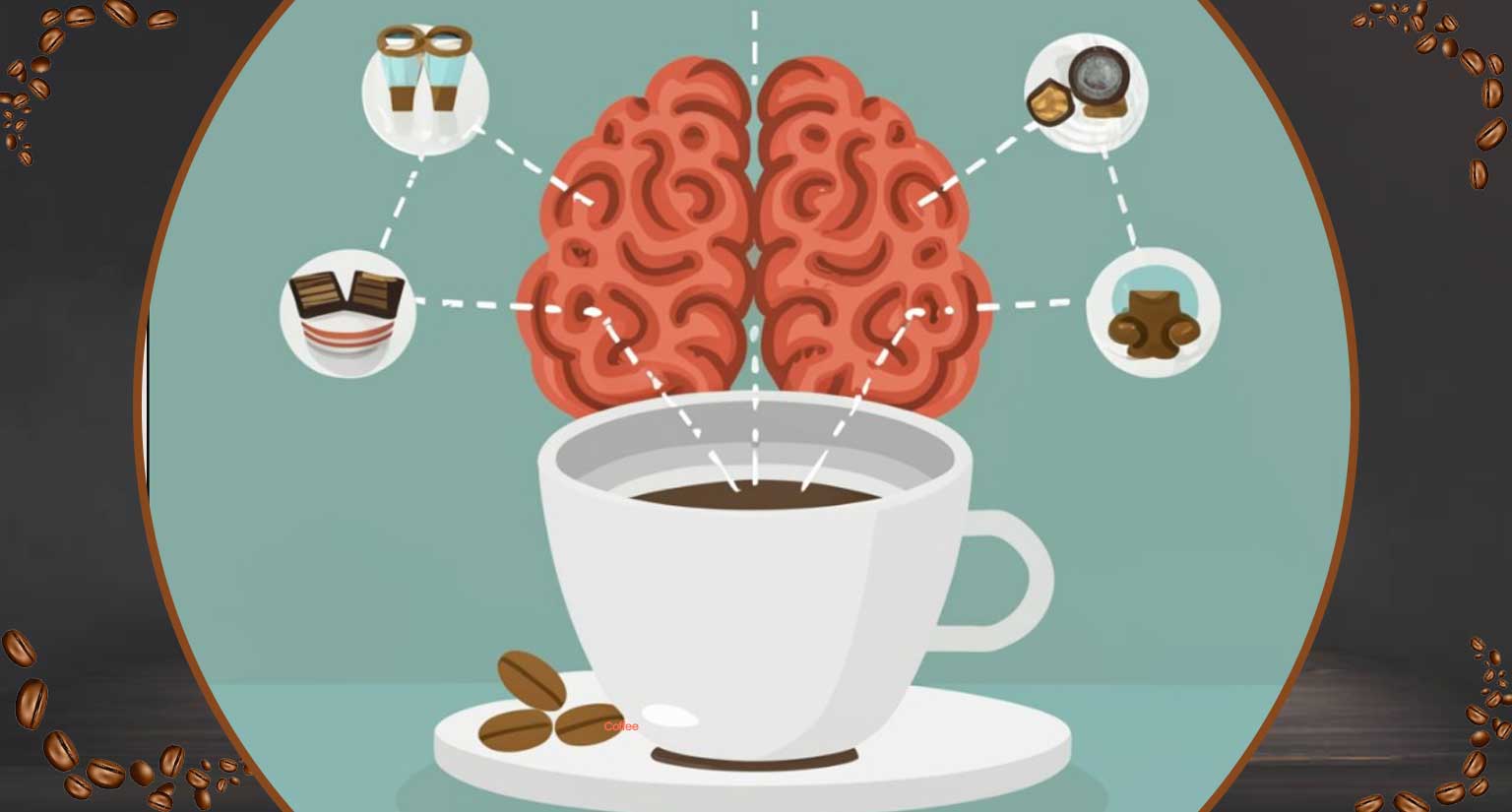How Coffee Affects the Brain: 5 Fascinating Insights into Neurological Impact
The impact of How coffee affects the brain is a subject of profound interest, stirring curiosity among researchers and coffee enthusiasts alike.
From enhancing alertness to influencing mood, the effects of coffee reverberate through neural pathways, shaping our daily experiences and productivity levels. In this comprehensive, how coffee affects the brain, uncovering insights that illuminate its role in our mental acuity and overall well being.
Is Coffee Good or Bad For The Brain?
The question of whether coffee is advantageous or detrimental to brain health is one that has intrigued scientists and coffee drinkers for decades. While some studies highlight the potential cognitive benefits of moderate coffee consumption, others raise concerns about its long term effects on neurological function.
The nuances of this debate reveals a complex interplay of factors, including coffee’s active compounds, individual genetic predispositions and lifestyle considerations. By examining the latest research findings and expert insights, gain a deeper understanding of the multifaceted relationship between coffee and brain health.
What Parts Of The Brain Does Coffee Affect?
Coffee’s impact on the brain extends across various regions, influencing neural activity and cognitive processes. Through its interaction with key neurotransmitters and receptors, coffee exerts its effects on the following areas.
Cerebral Cortex
Responsible for higher cognitive functions such as attention, memory and perception, the cerebral cortex experiences increased activity following coffee consumption, leading to enhanced mental alertness and focus.
Adenosine Receptors
Caffeine, a primary component of coffee, blocks adenosine receptors in the brain, preventing the neurotransmitter adenosine from binding to them. This action inhibits feelings of drowsiness and promotes wakefulness.
Dopaminergic System
Coffee stimulates the release of dopamine, a neurotransmitter associated with pleasure and reward, leading to feelings of heightened mood and motivation.
Central Nervous System
By crossing the blood brain barrier, caffeine reaches the central nervous system, where it modulates neurotransmitter levels and neuronal activity, exerting its stimulating effects.
Hippocampus
Critical for learning and memory formation, the hippocampus benefits from coffee’s neuroprotective properties, which may help mitigate age-related cognitive decline and reduce the risk of neurodegenerative disorders.
Understanding how coffee influences these areas of the brain sheds light on its profound effects on cognitive function and overall mental performance.
What Are The Negative And Positive Effects Of Coffee?
Negative Effects of Coffee
Increased Heart Rate
Coffee consumption can lead to elevated heart rate, which may be concerning for individuals with cardiovascular issues.
Insomnia
The stimulant properties of caffeine can interfere with sleep patterns, leading to insomnia and disrupted sleep quality.
Anxiety and Jitters
Excessive coffee intake may exacerbate anxiety symptoms and cause jitteriness or nervousness.
Gastrointestinal Distress
Coffee can irritate the stomach lining, leading to acid reflux, heartburn and digestive discomfort.
Dependency and Withdrawal
Regular consumption of coffee can result in caffeine dependency, leading to withdrawal symptoms such as headaches, fatigue and irritability upon cessation.
Increased Blood Pressure
Coffee consumption may temporarily elevate blood pressure levels, especially in individuals sensitive to caffeine.
Bone Density Reduction
Excessive coffee consumption has been linked to decreased bone density, potentially increasing the risk of osteoporosis.
Potential Addiction
Coffee contains caffeine, a psychoactive substance that can lead to dependence and addiction when consumed regularly in large amounts.
Positive Effects of Coffee
Enhanced Cognitive Function
Coffee can improve cognitive performance, including memory, attention and reaction time, due to its stimulant properties.
Mood Elevation
The consumption of coffee has been associated with increased feelings of well being and improved mood, attributed to caffeine’s ability to stimulate dopamine release.
Physical Performance Enhancement
Coffee can enhance physical performance by increasing adrenaline levels and mobilizing fatty acids, thereby improving endurance and exercise capacity.
Antioxidant Properties
Coffee contains antioxidants such as chlorogenic acid and polyphenols, which help combat oxidative stress and reduce inflammation in the body.
Reduced Risk of Certain Diseases
Moderate coffee consumption has been linked to a lower risk of various diseases, including Parkinson’s disease, Alzheimer’s disease, type 2 diabetes and certain types of cancer.
Improved Metabolic Rate
Coffee may boost metabolic rate and increase fat oxidation, making it a potential aid in weight management and fat loss efforts.
Liver Protection
Regular coffee consumption has been associated with a reduced risk of liver diseases, including cirrhosis and liver cancer, due to its hepatoprotective effects.
Social Benefits
Coffee serves as a social lubricant, facilitating social interactions and fostering a sense of community and connection among individuals.
Understanding both the negative and positive effects of coffee consumption allows individuals to make informed choices regarding their coffee intake and overall health and well being.
What Are The Mental Benefits Of Coffee?
Increased Alertness and Focus
The caffeine in coffee acts as a central nervous system stimulant, enhancing alertness, concentration and cognitive function, which can improve focus and productivity.
Enhanced Mood
Coffee consumption has been linked to improved mood and reduced risk of depression, as caffeine stimulates the release of neurotransmitters such as dopamine and serotonin, which are associated with feelings of pleasure and well being.
Improved Memory
Moderate coffee intake has been shown to enhance memory consolidation and retrieval processes, thereby improving short term and long term memory performance.
Reduced Risk of Cognitive Decline
Regular coffee consumption has been associated with a lower risk of age-related cognitive decline and neurodegenerative disorders such as Alzheimer’s and Parkinson’s diseases, potentially due to coffee’s neuroprotective properties and antioxidant content.
Increased Mental Stamina
Coffee can help combat mental fatigue and sustain cognitive performance over extended periods, making it a popular choice for boosting mental stamina during demanding tasks or periods of prolonged concentration.
Enhanced Problem Solving Skills
The cognitive enhancing effects of coffee may improve problem solving skills, decision making abilities and cognitive flexibility, allowing individuals to approach tasks with greater efficiency and effectiveness.
Stress Reduction
Moderate coffee consumption has been linked to lower levels of perceived stress and reduced stress related symptoms, possibly due to caffeine’s ability to modulate stress hormone levels and improve coping mechanisms.
These mental benefits highlight the potential positive impact of coffee on cognitive function, mood regulation and overall mental well being when consumed as part of a balanced lifestyle.
Conclusion
The intricate interplay between coffee and the brain unveils a fascinating realm of cognitive enhancement and neurological modulation. Understanding how coffee affects the brain provides valuable insights into its role in promoting mental acuity, mood regulation and overall cognitive function.
The diverse mechanisms through which coffee influences neural pathways, gain a deeper appreciation for its profound impact on human cognition and well being. Moderation and mindfulness in coffee consumption allows individuals to harness its benefits while mitigating potential drawbacks, ultimately empowering them to optimize brain health and performance.







